![]() — Home — Business News
— Home — Business News
Weekly Business News from Myanmar
-
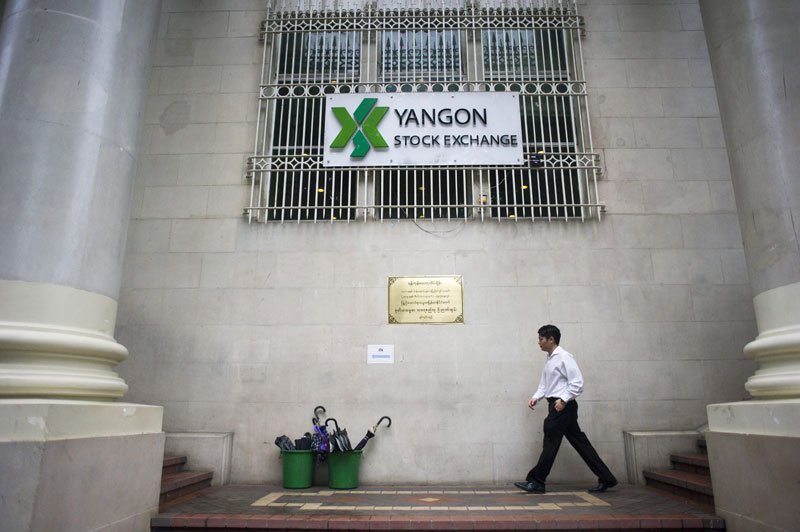
The Investment Application Guidebook, a collaborative project between DICA and GIZ Myanmar, will be launched at the Yangon Investment Forum: it aims to provide easier access to valuable information on investment application procedures
The Investment Application Guidebook, which provide easier access to valuable information on investment application procedures will be launched at the Yangon Investment Forum developed by the DICA with technical assistance provided by the German Cooperation through Deutsche Gesellschaft für Internationale Zusammenarbeit GmbH GIZ (commissioned by the German Federal Ministry for Economic Cooperation and Development), according to a statement. The Myanmar Investment Law (MIL), enacted in 2016, has substantially clarified and simplified the process for investment applications and offers a number of tax breaks, incentives, guarantees, rights and protections for business ventures. By creating a favorable business and investment environment, Directorate of Investment and Company Administration (DICA) and Yangon Region Investment Committee (YRIC) are continuously striving to promote private sector development in Myanmar and to boost domestic and foreign investment. -
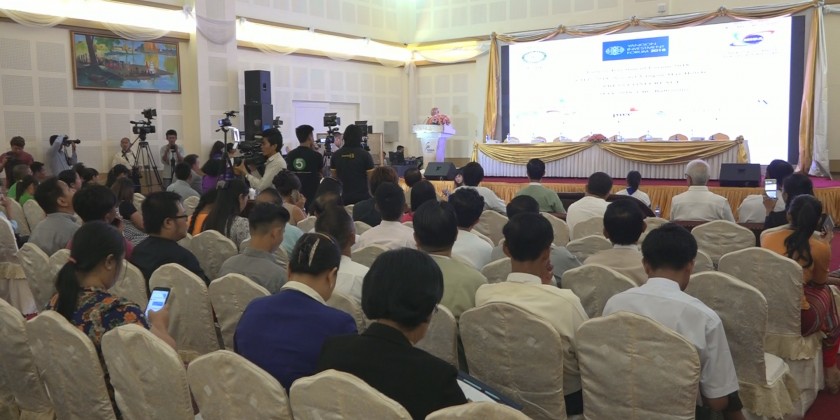
Yangon Region Government held a press conference on preparations for the inaugural Yangon Investment Forum which will be held on 9 May 2018 at Novotel Yangon Max Hotel
Yangon Region Government on Wednesday held a press conference on preparations for the inaugural Yangon investment forum. To be organized by the Yangon region investment committee and directorate of investment and company administration, the forum is expected to attract more than 500 local and foreign investors. It will be held on the 9th of May at Novotel Yangon Max Hotel. Minister, Ministry of planning and finance (Yangon Region), Myint Thaung said "As the new investment law is approved, foreign investors show interest to invest. So the upcoming forum will give opportunities for foreign investors how to apply for investment in our country and the taxation as well." -
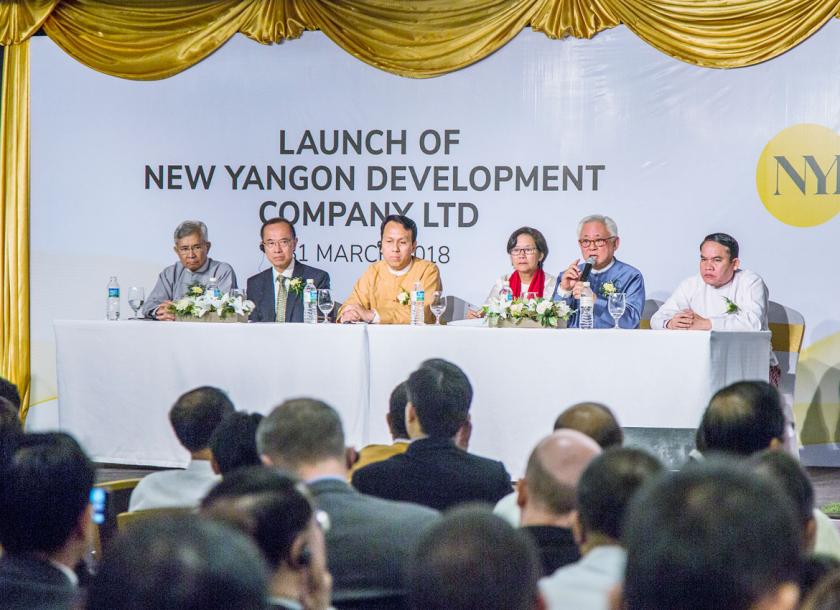
The government-owned New Yangon Development Company Limited (NYDC) vows to release project documents of selected tenders for public scrutiny to improve transparency
The authority responsible for Yangon’s new city development has vowed to release the project documents of selected tenders for public scrutiny, and allow third parties to challenge the awarded party. On May 2, the government-owned New Yangon Development Company Limited (NYDC) announced that the NYDC signed a framework agreement with China Communications Construction Company (CCCC), to draft and map out a programme proposal for infrastructure projects related to Phase 1 of the new city programme. The framework agreement, signed on April 30, is the first stage of the NYDC Challenge Model where a company which is qualified to undertake Phase 1 development is selected to submit a set of Pre-Project Documents (“PPD”). PPD includes technical specifications, financial proposal and business model for NYDC to evaluate. When the PPD are approved by NYDC, the documents will be made public to allow any qualified party to challenge the agreement with better terms on the basis that it strictly adheres to the terms and conditions of the tender assessment criteria. -
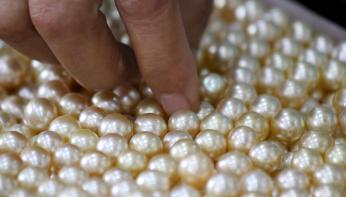
Myanmar Pearl Enterprise (MPE) is planning to raise production of high quality local pearls by working with international companies, and sharing research and technologies among the local pearl producers
The Myanmar Pearl Enterprise (MPE) will raise production of high quality local pearls for the purpose of selling more of the gems to international buyers and raising income. By working together with international companies, the MPE is aiming to raise the volume and quality of locally produced pearls. “We plan to invest more in research and skills training to raise the quality of local pearl culture farms and invite foreign pearl producers to establish more joint ventures with the locals,” said U Myint Thu, general manager of the MPE. “We will now prioritise quality over quantity by sharing research and technologies among the local pearl producers,” he added. In Myanmar, the cultivation and production of fresh peals is mainly conducted in Tanintharyi Region. Currently, pearls are being produced in Kawthoung and Myeik by State-owned cultivators, while private firms run pearl farms on a dozen islands in the archipelago. -
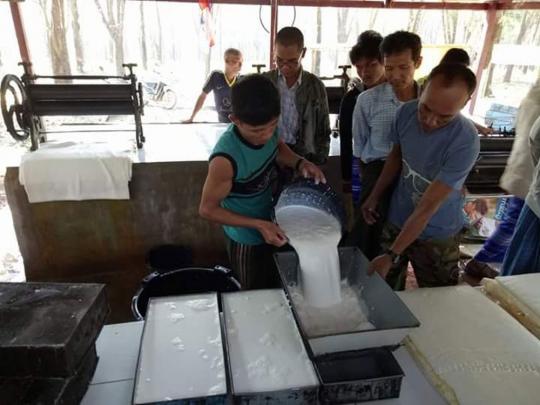
Higher rubber production and control on illegal rubber exports have increased rubber exports to around 50,000 tonnes during two consecutive fiscal years (U Khaing Myint, General Secretary of Myanmar Rubber Planters and Producers Association)
Rubber exports have increased by around 50,000 tonnes during the two consecutive fiscal years as the country sees an increase in rubber production and are able to control illegal rubber exports, said Khaing Myint, general secretary of Myanmar Rubber Planters and Producers Association. In the past, the country exported 80,000-90,000 tonnes of rubber. Since 2016-2017 FY, the country’s rubber exports have reached more than 130,000 tonnes. Till March 2 of 2017-2018 FY, the country earned US$ 179 million from exports of 136,000 tonnes of rubber, according to the Commerce Ministry. Earnings from exports of over 75,000 tonnes of rubber amounted to US$ 218 million in 2012-2013 FY, 84,000 tonnes of rubber, US$ 196 million in 2013-2014 FY, 77,500 tonnes of rubber, US$ 112 million in 2014-2015 FY, over 88,500 tonnes of rubber, US$ 101 million in 2015-2016 FY, according to the Commerce Ministry. -
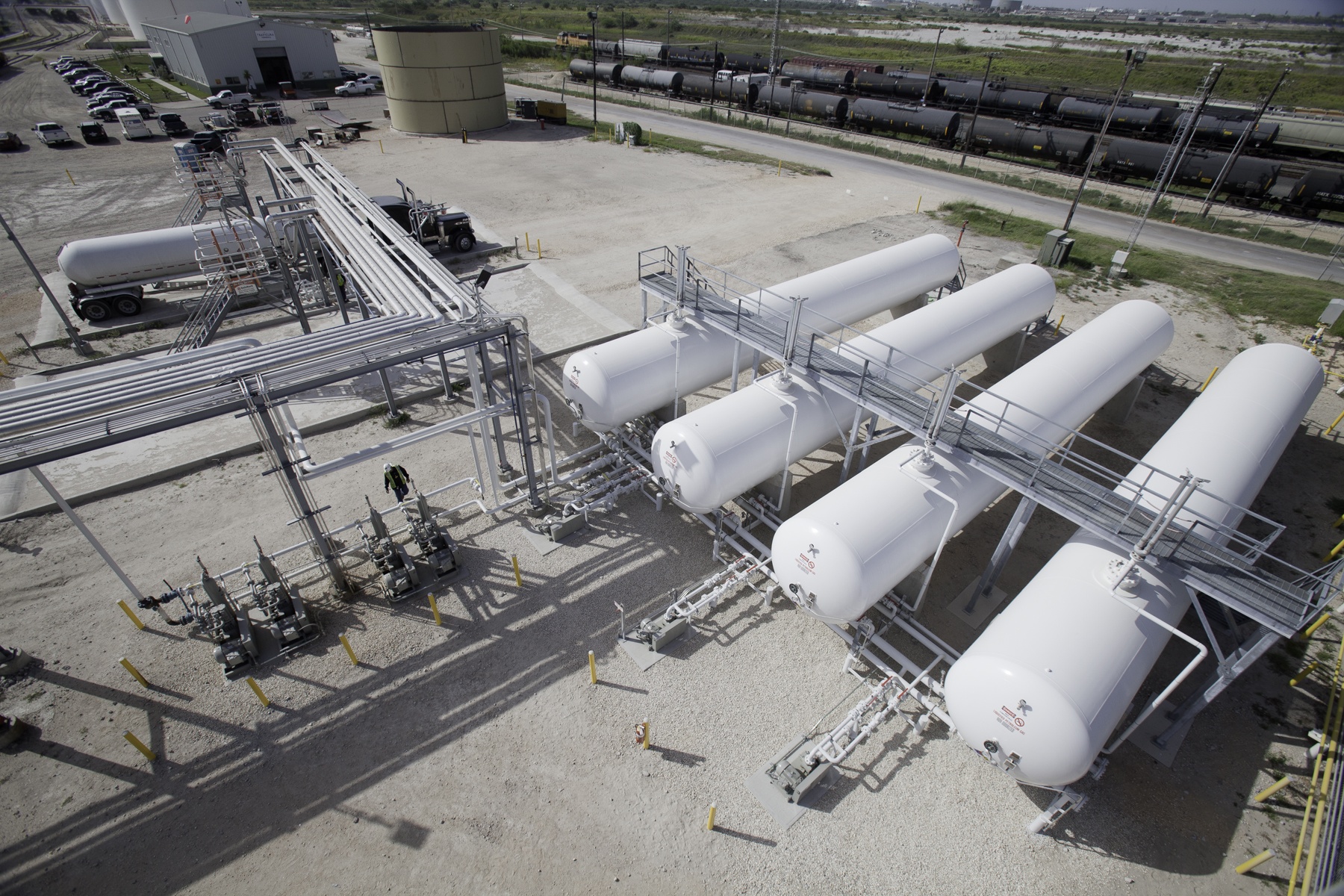
Myanmar is now using about 6,500 tons of liquefied petroleum gas (LPG) and imports around 5,000 tones of LPG monthly
Myanmar is using about 6,500 tons of liquefied petroleum gas (LPG) and imports about 5,000 tons of LPG monthly, according to sources. Myanmar imports LPG mostly from Myawady border trade center but import via sea routes are increasing as traders cope with higher demands. Despite increasing usage of LPG, traders claim that the profit margin is still too little due to the niche market space LPG holds. Currently all importers are buying it indirectly and only transportation and distribution are different among the importers. Traders said the expenses of transporting the LPG from a port to Myawady border trade center to Yangon is differs around Ks 20 per kilogram and with a similar price range to transport to Upper Myanmar regions. Myanmar formerly used the LPG less than now before it was recognized as an official goods in 2012. -
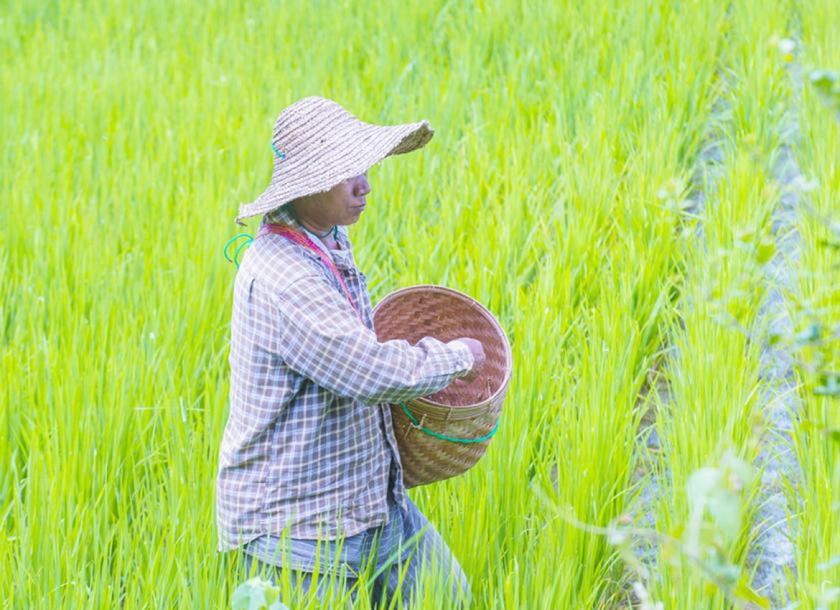
Myanmar Agriculture Development Bank (MADB) revised the farmers’ loan system from the group-based lending system to an individual based system, so that farmers can provide their own guarantees (Daw Khin Nan Myint, Deputy General Manager of MADB)
The Myanmar Agricultural Development Bank (MADB) will start disbursing loans on an individual basis, moving away from the current group-based lending system, “said Daw Khin Nan Myint, deputy general manager at the MADB. “Starting this year, we will extend loans to individual farmers. If a farmer successfully pays off his loans, he can apply for a fresh loan,” she told The Myanmar Times yesterday. Under the new system, farmers will be able to provide their own guarantees. This will differ from the old system, under which the MADB provides loans to groups of three farmers who guarantee each other. The main issue is if two farmers in a group have paid off their loans, they are still unable to apply for fresh loans if the third farmer has not repaid his loan. “The problem is that if one farmer in a group is unable to repay his loan, the others hold off from repaying as well as they are worried that they will not be able to get loans again,” said Daw Khin Nan Myint. -
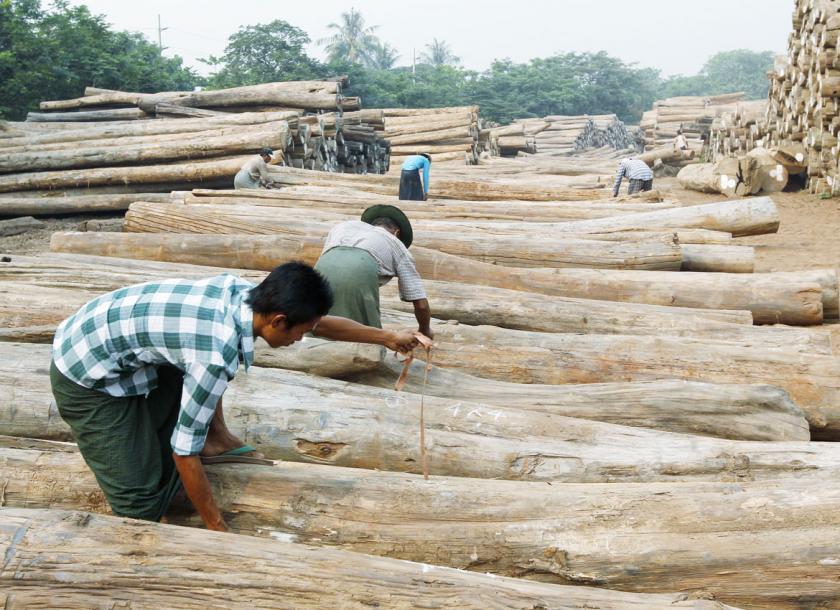
Myanmar Timber Enterprise (MTE) is targeting higher sales during the six month period between April to October this year and expects to generate K63 billion in revenues (U Khin Maung Kyi, Deputy General Manager of MTE)
State-owned Myanmar Timber Enterprise (MTE) is targeting sales of 5,000 tonnes of teak and 100,000 tonnes of hard wood during the six-month period between April and October this year. The sales are expected to generate K63 billion in revenues, MTE deputy general manager U Khin Maung Kyi told The Myanmar Times. Sales will be conducted both locally and internationally to cover MTE’s commitments to the government, which includes 20 percent of its revenues as well as taxes of 25 pc. “Our department has to provide about K 15 billion. Then 25pc tax is about K 19 billion,” said U Khin Maung Kyi. “We also have to cover costs like salaries and other operational expenditure,” he added. In total, MTE’s costs have been estimated at around K86 billion. In Myanmar, state-owned enterprises (SOEs) must pay 20pc of their revenues to the State and a 25pc tax on net income has to be paid to the State, too, said Daw Nwe Nwe Win, Director General from Budget Department. -
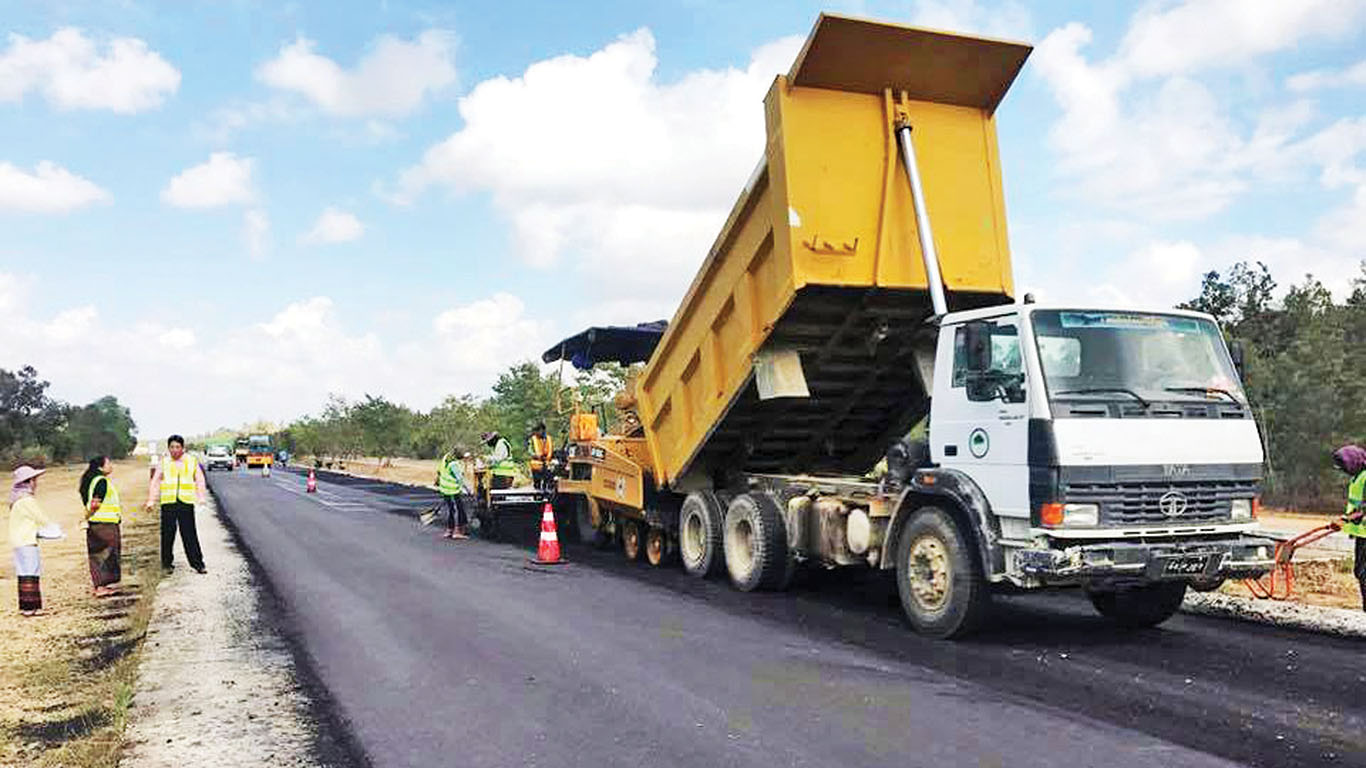
Over the past two years, Ministry of Construction has made significant achievements in the road and bridge sector: some places which did not have access to road facilities in the past got road access in the last two years
As for the Ministry of Construction, plans are under way to design and estimate the construction and maintenance of roads, bridges, buildings and airfields in accordance with the rules and regulations of the country. The Government is conducting reforms in all sectors for progress in all states and regions. This is a union where ethnic brethren live together in harmony through thick and thin. Basic infrastructures like roads and bridges need to be sound for reliable road transportation between states and regions so that trade, contact and relations are established enabling all ethnic brethren to have developments in social, education, health and economic sectors. Through this, friendship and good relations among the ethnic brethren will increase. In addition to improving the road transportation and construction of buildings for safe dwelling, the Ministry of Construction is improving rural roads continuously. -
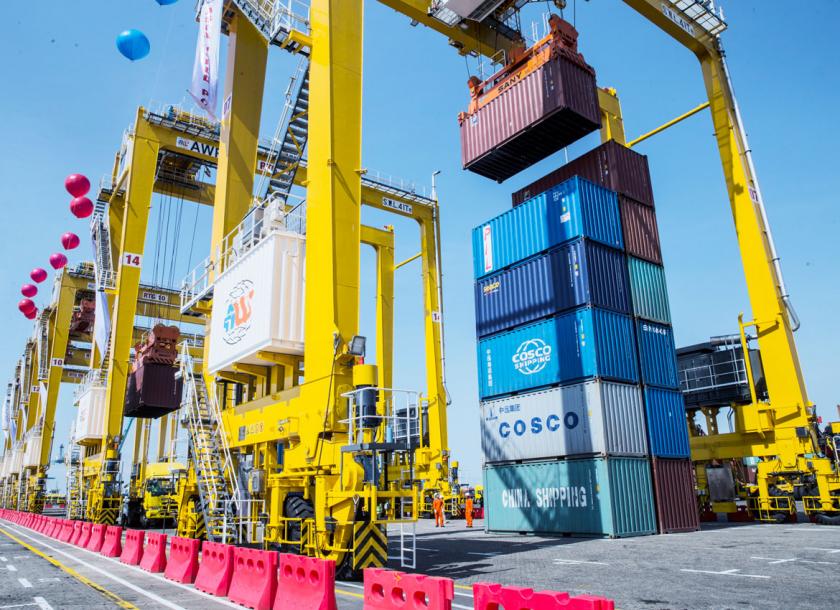
Myanmar Port Authority will computerize its Port Electronic Data Interchange (Port EDI) to enhance the efficiency of trade and logistics in the coastal ports
Myanma Port Authority, under the Ministry of Transport and Communications, launched its Port Electronic Data Interchange (Port EDI) system on April 30. The adoption will computerise the entire system and enhance the efficiency of trade and logistics in the coastal ports. The launch ceremony was held at Park Royal Hotel in Yangon on April 30. The implementation of the new system was supported by the Japanese government and Japan International Cooperation Agency (JICA) since 2015. Port EDI system consists of six system functions and system infrastructure. The system functions provide the port clearance procedures system, berth allocation system, invoice issuing system, statistics management system, logistics monitoring system and terminal operation system. With the new systems, port-related procedures, collection of port charges, management of port statistics and terminal operation management handled by paperwork and rudimentary way of data processing for the whole process can be replaced and streamlined with technology. The system provides smooth flows of operation within a short time and without unnecessary inputs. For example, documents do not have to be circulated manually.
Business News
Copyright © 2014 Business Information Center All Rights Reserved.







